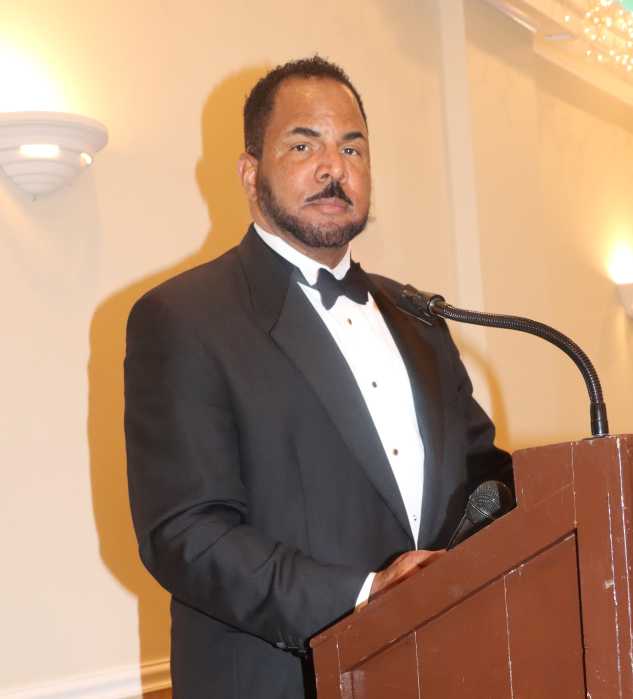Caribbean
The head of the Caribbean Public Health Authority (CARPHA), Dr. James Hospedales, said the Chikungunaya virus has reached epidemic proportions in the Caribbean.
“By definition this is an epidemic since it represents an unusual number of cases of this problem where we would never have it done before,” Dr Hospedales.
The mosquito-borne illness was first detected in the Caribbean in December 2013, in St Martin and recently Antigua and St Vincent and the Grenadines became the latest countries to declare an outbreak.
According to Dr. Hospedales, as of April 28, there were 4,108 probable cases 14 countries across the region.
He also stated that Caribbean countries have putting measures in place in place to address the spread of the virus.
“In December, once it came into the region we established an incident management team and that has regular contact with the countries with PAHO (Pan American Health Organization),” Hospedales said.
To date Chikungunya virus has been confirmed in Anguilla, Aruba, Virgin Islands, Dominica, Dominica Republic. French Guiana, Guadeloupe, Martinique, St. Kitts and Nevis, St. Lucia, St. Vincent and the Grenadines, St. Maarten (Dutch) and St. Martin (French).
Guyana
Guyana police are investigating the deaths of four people who unknowingly drank a tonic laced with cocaine last Sunday.
One other person –a child- is battling for her life at hospital.
Those who died are identified as Simone “Ngina” Price, 36, her husband, Alex Blair, 42, her seven-year-old son Jahaquel Blair and her close friend, Natasha George, 36.
Price’s elder son, Jamal Waterman, 12, is in a critical condition at the Georgetown Public Hospital.
Investigators are working on a theory that the bottles of multivitamin tonic had been handed to the family for a family guest to be taken to the United States when she was returning.
The cocaine was dissolved inside, along with casareep and chicken foot.
Police said in a statement that the family ingested SSS Tonic into which a quantity of cocaine had been dissolved.
It said that the bottle of SSS Tonic, along with other goods had been left at the house by a man known to them for an overseas-based female relative to take with her on her return. However, she did not carry the items because she was traveling to Pennsylvania before going on to New York.
Haiti
The American government has awarded US$4 million to help Haitian families hurt by a drought in the Caribbean nation.
The U.S. Embassy in Port-au-Prince said recently that the U.S. Agency for International development awarded the money to CARE International.
About 60,000 people living in the remote village of Jean-Rabel who are malnourished or at the risk of severe hunger will receive food vouchers for ten months under the emergency assistance. Some of the money will be used to develop savings and loans programs.
The northwest part of the country has long been prone to dry weather conditions but a drought since October has been particularly acute.
Subsistence farmers have lost two harvest seasons, seen food prices climb and have struggled to feed their families.
Jamaica
Plans to impose a tax on bank withdrawals as part of revenue measures for the 2014/2015 financial year, have been scrapped.
Faced with intense opposition to the proposed tax, the Simpson-Miller administration has decided to look elsewhere to collect revenues for the Budget.
Finance Minister Dr. Peter Phillips who made the announcement as he closed the Budget debate recently said the gap will be filled by the life insurance industry.
The first being the introduction of a 15 percent withholding tax on all insurance premiums paid by Jamaican residents to non-residents, premiums paid by Jamaican residents to registered Jamaican insurance companies will be exempt. The objective of this measure is to assist us in improving compliance while we strive to protect the most vulnerable,” he said.
The Citizens Action for Principle and Integrity (CAPI) has welcomed the government’s decision to reverse the bank withdrawal tax, which it says was widely perceived to be unjust.
CAPI says it is urging government to recognize the value of consultation in crafting future budgets and its usefulness in facilitating consensus on national issues.
St. Lucia
The National Vision Commission, which was announced by St. Lucia’s Governor General, Dame Peralette Lousiy in the 2013 Throne Speech was launched recently in Castries.
The Vision Commission will explore all sectors of the economy and is expected to capture the needs and aspirations of a wide cross section of the public.
Recently Prime Minister Dr. Kenny Anthony said the Vision Statement, which will be the end product of the process, will guide the development of economic and social policies as well as strategic planning initiatives over the next few years.
He said the National Vision will help in defining priorities of St. Lucia’s needs.
The Commission comprises representatives recommended by the Governor General, the prime minister, Leader of the Opposition, Civil Society (including youth) and other non-governmental organizations, trade unions, and major private sector groupings.
Trinidad
The 332 kilo grams of cocaine valued at US$106 million, which was shipped to Norfolk, Virginia, USA from Trinidad and Tobago in fruit juice cans last December originated from Europe, according to Robert Kennedy, attaché for the Drug Enforcement Agency (DEA) Administration for Port of Spain.
Kennedy was at the time addressing the recent Association of Caribbean Commissioners of Police 29th annual general meeting and conference at the Hyatt Regency, Port of Spain.
“Another accomplishment here in Trinidad and Tobago, for the first time in a record long time, we have had a significant seizure of a direct shipment from Trinidad and Tobago to the United States,” he said.
He said the shipment originated out of Europe and made its way to Norfolk, Virginia and is currently being investigated by the Trinidad authorities and the DEA.
Kennedy said that Caribbean countries need to collaborate and solidify strategies in order to stem the trafficking problem in the region.
Guyana
The Caribbean Financial Action Task Force (CFATF) has warned of harsh consequences should Guyana fail to pass anti-money laundering legislation.
The task force addressed the matter during a meeting recently with President Donald Ramotar, Attorney General Anil Nandlall and others.
Following the meeting, Nandlall said CFATF noted that Guyana is the only country yet to implement all of the recommendations related to the bill.
He said although Guyana has a completed a bill that has been examined by CFATF and deemed to be compliant, the proposed draft amendments made by the parliamentary opposition do not address the bill.
In response, vice-chairman of A Partnership for National Unity (APNU), Dr. Rupert Roopnarine, said there is a political crisis and it requires a political solution.
APNU maintains that even if an agreement was reached in the Special Committee on amendments to the 2009 Anti-Money Laundering and Countering of Financing Terrorism, there are several political issues to be resolved.
Trinidad
Former Prime Minister Basdeo Panday has joined several citizens who have called for foreign investigators to be used to probe the murder of special prosecutor Dana Seetahal SC.
He said citizens lacked confidence in the Police Service and in the interest of speedy justice foreign assistance should be used.
The government must take the blame for the crime problem in the country as it had no clue on how to fight crime effectively, he added.
According to Panday, the People’s Partnership was selected to deal with the problem but failed “miserably.”
He said the government must consequently be blamed, not only for Seetahal’s death but all the murders in the country since it assumed power in 2010.
The former prime minister said since Sunday’s killing, the population was more scared.
Compiled by Azad Ali

























